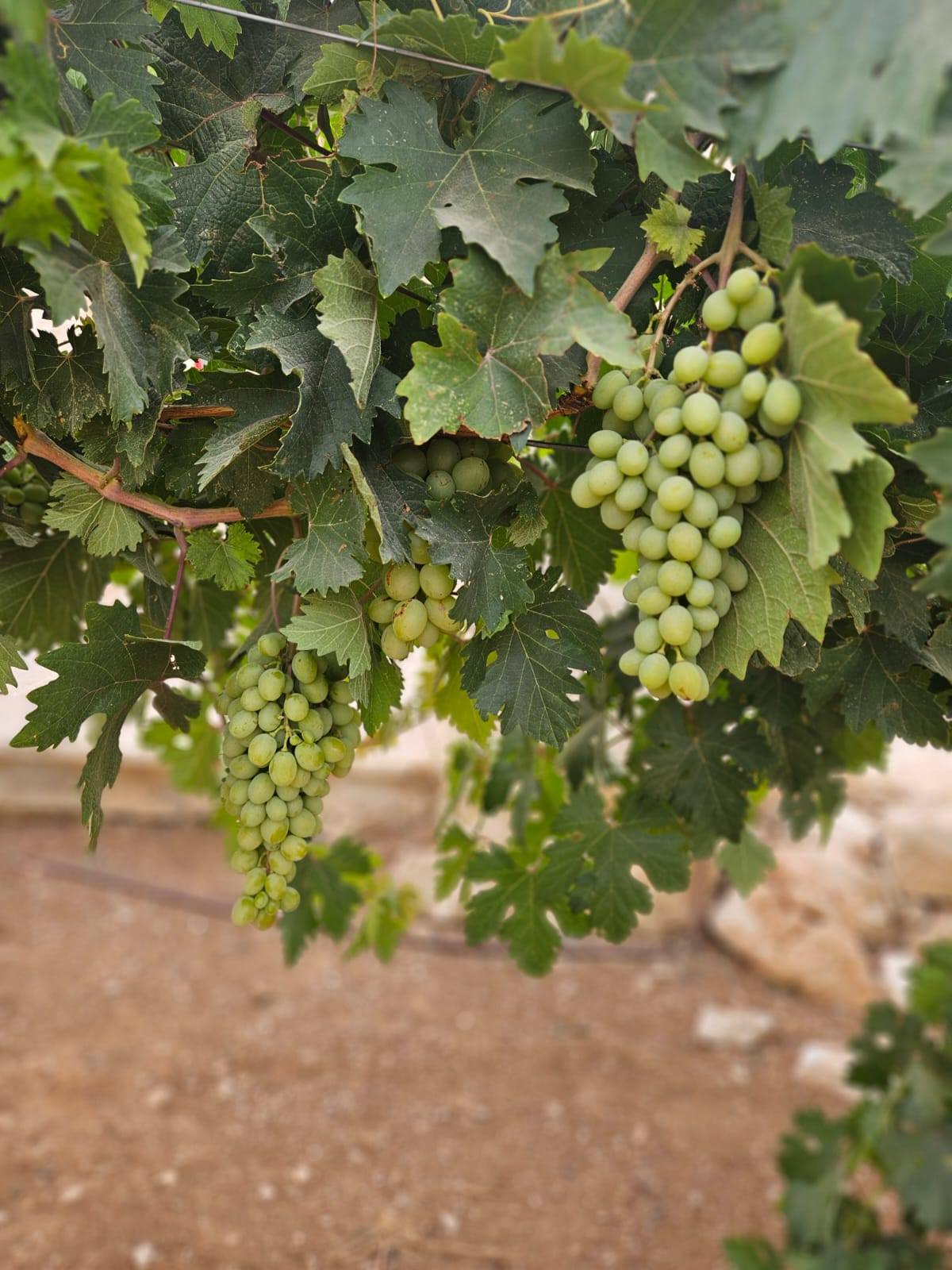When Rabbis Ari Abramowitz and Jeremy Gimpel, along with two other families, established Arugot Farm on the southeastern tip of the Judean Desert in an area critical to Israel’s safety and security, the area was rich in biblical history and breathtaking scenery, but little else. The land was wild and barren. Located in the heart of the biblical “Wilderness of Zif,” where King David composed many of the Psalms and hid from King Saul, the Arugot Farm has been transformed in just a few years from a barren, desolate wilderness to a Garden of Eden-like oasis, unlike anything in the Land of Israel.
Such a farm deserved special crops that reflected its Biblical roots. Rabbi Abramowitz turned to Sim Herring, an organic farmer based in the Golan. Herring grew grapes developed by Dr. Elyashiv Drori of Ariel University, who has spent the last twenty years identifying and reviving ancient grape seeds unearthed in the land. Drori had rediscovered grape vines dating back to the time of King David as part of his Heritage Forests project. The seeds were discovered in the City of David, meaning that these were the very grapes that once graced King David’s royal table. Rabbi Abramowitz planted about 40 seedlings.
Rabbi Abramowitz noted that Deuteronomy 20:6 exempts men from war who have planted a vineyard but not yet tasted its fruit.
“As I watch these vines finally yield their first beautiful, delicious clusters, I understand as never before the Torah’s teaching that one who plants a vineyard is exempt from going to war—for the planter’s heart is deeply bound up in the life he has nurtured, filled with hope and longing for the first fruits,” Rabbi Abramowitz wrote about his growing vineyard.
It should be noted that usually, one who plants a vineyard in the Holy Land must wait four years before partaking of the fruit. For the first three years, the fruit is classified as orlah, as written in Leviticus 19:23. In the fourth year, the fruit is classified as neta revai and must be brought to the Temple, where it is consumed. However, the young vines planted by Rabbi Abramowitz were transplanted with their soil from the original field, where they had already grown for four years, making the fruit immediately permitted for consumption.
Anyone who has seen Rabbi Abramowitz since October 7 knows that he has not sought any exemptions and is usually wearing his IDF fatigues, carrying his gun. He has been a true warrior defending Israel.
Rabbi Abramowitz emphasized that planting vineyards in Israel is the manifestation of the prophecy of Micah:
Everyone will sit under their own vine and under their own fig tree, and no one will make them afraid, for the LORD Almighty has spoken. Micah 4:4
To this end, he also planted a fig tree by his outdoor dining area.
“This moment is more than a personal milestone,” he said. “It feels like a revolution. Just as the minute hand circles the clock with one complete revolution to return to its starting point, so too these grapes symbolize the return of the Jewish people to Judea. A return to the very beginning.”
“So we are here, back to the beginning, connecting to our roots, our indigenous roots, in every single way. And as our enemies continue to seek to uproot us from our land, our roots are only growing deeper,” he added. “I am grateful beyond words to witness this ancient promise springing back to life, one grape at a time, and one Jew at a time.”




